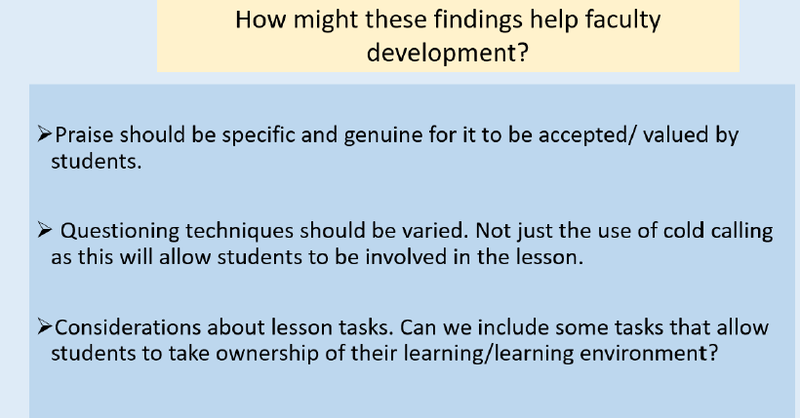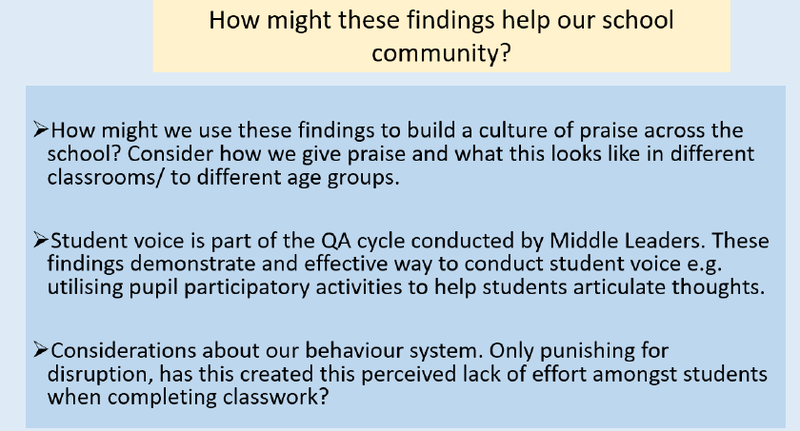Engagement or Compliance: a case study exploring the engagement of white British boys in humanities classrooms at KS3
- Student Engagement
- Learning environment
- Student
- Secondary
- Mainstream
- Education and Language
- Perspectives
The concept of engagement is often utilised to explain a variety of issues in education such as disaffection, school drop-out rates and underachievement. In England educational achievement is lower for disadvantaged students who are white and male than for disadvantaged students in any other ethnic group. Therefore, explanations for this underachievement often refer to a lack of engagement amongst White British boys in the classroom, associating disengagement with underachievement. There is a wealth of research about the external and contextual reasons for this disengagement such as social deprivation and negative parental attitudes to education. However, concerned with the minimal research about how the practice of teachers may influence levels of engagement in Humanities classrooms, this research explores both the attitudes and experiences of White British boys and their teachers with regards to engagement. The purpose of the research is to explore the conceptualisation of engagement by students and their teachers, to discover which practices they consider promote engagement. Through employing a case study approach the study found that there is no shared conceptualisation of engagement amongst Humanities teachers and their students. Moreover, there are internal classroom practices that influence levels of engagement. Practices such as praise, questioning and teacher support should be utilised carefully to meet the emotional and not just academic needs of students as this will create a positive student-teacher relationship. Therefore, future research may want to consider how these techniques can be developed within secondary classrooms to provide guidance to classroom teachers. As ultimately it is these positive relationships and inclusive classrooms that promote engagement amongst KS3 students in Humanities.
The term engagement is often used by school leaders to explain challenges in classrooms such as poor behaviour and under achievement. However, this research has illustrated that there is no consensus amongst teaching staff when defining what engagement is and how this looks in the classroom. Therefore, in the future school leaders might consider providing more clarity when using the term for school improvement plans or faculty improvement plans. For example, if we are trying to engage a specific group of pupils, are we trying to increase their interest in the subject or increase the amount of effort they put into their classwork? As teaching staff have their own perceptions of engagement, defining the concept as a school will be beneficial for wider school improvement. Humanities teaching staff have been frustrated with the lack of engagement from White British boys in their classrooms. Often staff have perceived that the reasons for this are due to external factors such as parental attitudes and social deprivation. However, this study has shown that there are changes teachers can make to their own practice to promote engagement in their classrooms. These recommendations will not only increase engagement amongst WBBs but are applicable to all students. For example, giving praise that is specific and genuine so that it is valued by pupils. Having conversations with pupils about seating plans to allow them to feel included in the classroom. Developing teaching practice around questioning so that a range of questioning techniques are used beyond. Using a range of questioning techniques will help to encourage student participation in the classroom. Making these small conscious adaptations to our teacher practice will help to improve relationships in our classrooms.


